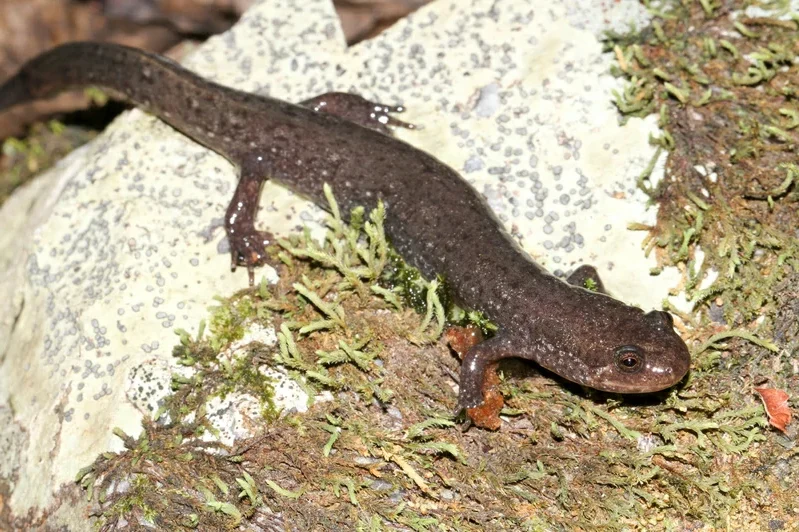Many people wonder if salamanders come out when it’s dark. The simple answer is yes, most salamanders are active at night.
Most salamanders are nocturnal, meaning they do most of their hunting, mating, and exploring after dark. The cool, moist conditions at night help them stay safe, find food, and avoid predators.
Night Animals vs. Day Animals
Some animals are active during the day, these are called diurnal animals. Others, like salamanders, are mostly active at night, which makes them nocturnal.

Salamanders prefer night because their bodies work better in cool, moist air. During hot days, they hide under rocks, logs, or underground to stay safe and moist. At night, the air is cooler and more humid, making it easier for them to move and hunt.
Why Salamanders Like the Night
Temperature Control
Salamanders are cold-blooded, so their body temperature changes with the environment. When it’s too hot, they can get sick or dry out. Nighttime brings cooler air, helping salamanders stay comfortable and active without losing too much moisture.
Staying Safe from Predators
Daytime predators like birds and snakes use their vision to hunt. In bright light, small salamanders are easy targets. Darkness helps protect salamanders by hiding them from predators, letting them move more safely.
Better Hunting Conditions
Many insects and worms that salamanders eat become active at night. This means salamanders have more food available and better chances to find meals in the dark.
What Do Salamanders Do at Night?
Looking for Food
Salamanders eat insects, worms, and small animals. At night, when prey is active, salamanders use their sensitive skin and keen senses to find food. They can sense movement and smell chemicals to hunt in the dark.
Common foods include beetles, ants, flies, earthworms, spiders, termites, and small snails.
Finding Mates
Salamanders breed mostly in spring and fall. During these times, they become more active at night, searching for mates. Males may perform special movements or release pheromones to attract females. Nighttime makes these behaviors safer and more effective.
Exploring Their Territory
Salamanders also use the night to explore their home areas. They look for safe hiding spots, food sources, and places to rest. Young salamanders especially need to learn about their environment to survive.
Different Types of Salamanders
Terrestrial Salamanders
Terrestrial salamanders, like the Red-backed Salamander, are mostly active on the forest floor at night. They hunt under leaves and logs, moving quickly to avoid daytime predators.
Semi Aquatic Salamanders
Semi aquatic salamanders, such as newts, swim and hunt in ponds and streams at night. They also come up for air more often when it’s dark.
How Human Activities Affect Salamanders
Light Pollution
Artificial lights in towns and cities can confuse salamanders. Bright lights may stop them from coming out or cause them to get lost, making it harder to find food and mates.
Habitat Loss
Building roads and houses destroys salamander homes. This forces them to travel farther at night to find food and safe places.
Climate Change
Warmer temperatures and changing rainfall can reduce when salamanders can be active at night. Hot, dry conditions make it harder for them to survive.
The Important Role of Salamanders
Salamanders eat many insects, helping control pest populations. One salamander can eat hundreds of insects in a night, keeping forests healthy.
They also serve as indicators of environmental health. Healthy salamander populations mean good water and habitat quality.
Conclusion
Salamanders are mostly active at night for good reasons. The cooler, damper darkness helps them stay safe, find food, and reproduce.
Understanding their nighttime behavioral patterns helps us appreciate these special creatures and shows why protecting their habitats matters.
Next time you’re outside on a warm, humid night, remember there’s a hidden world of salamander activity just beneath your feet. These little animals are working hard to survive and keep their populations strong in the quiet of the night.
Hi, my name is Ezra Mushala, i have been interested animals all my life. I am the main author and editor here at snakeinformer.com.

